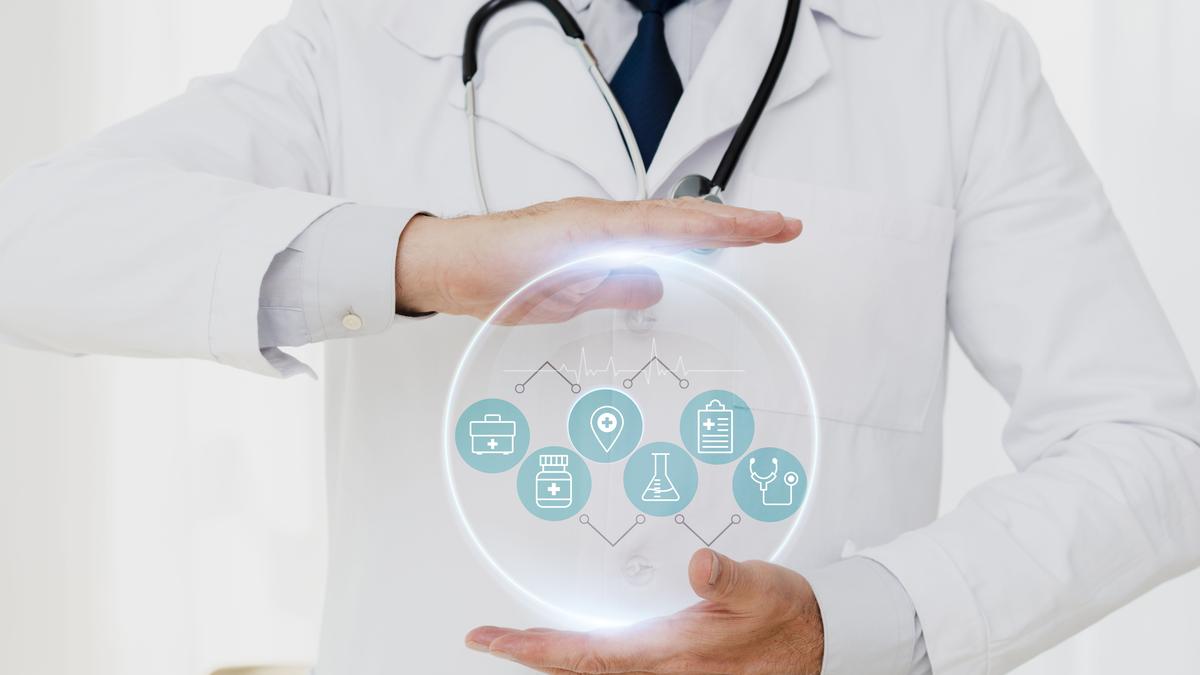
Innovative teaching methodologies in modern medical education
The Hindu
Innovative teaching methods in medical education, including simulation labs and robotic surgery, prepare future healthcare professionals effectively.
The landscape of medical education is evolving rapidly, with innovative teaching methodologies transforming how future healthcare professionals are trained. As the demand for proficient and adaptable physicians grows, medical colleges must adapt and integrate new techniques to ensure their graduates are well prepared for the challenges of modern medicine. Let’s have a look at some of the most innovative teaching methodologies that are shaping the future of medical education.
Simulation-based learning is at the forefront of modern medical education. These close-to-reality scenarios allow students to practise and refine their skills in a controlled environment, bridging the gap between theoretical knowledge and real-world application. High-fidelity mannequins, virtual reality and standardised patients provide invaluable hands-on experience. By simulating everything from routine procedures to complex surgeries, students can develop critical thinking, decision-making and procedural skills without the risk of harming actual patients. This approach not only builds confidence but also ensures that graduates are better prepared for the demands of clinical practice. Skill labs, furnished with state-of-the-art simulation technology and virtual patient scenarios help students build their confidence in procedures before undertaking clinical and surgical skills on real patients.
Medical students and residents now have the opportunity to learn using advanced robotic systems that offer unparalleled precision and control and allow trainees to practice complex surgical procedures with a level of accuracy that is difficult to achieve with traditional methods. Moreover, the integration of robotic surgery into the medical curriculum helps students become proficient with the technology they will encounter in their professional careers.
Problem-Based Learning (PBL) is a student-centred approach that encourages active learning through the exploration of real-life medical cases. Students work in small groups to solve complex clinical problems, fostering collaboration, critical thinking and self-directed learning. This method shifts the focus from passive absorption of information to active problem-solving, mirroring the dynamic and interdisciplinary nature of medical practice.
Interprofessional Education (IPE) is another innovative approach gaining traction. It involves learning alongside students from other healthcare disciplines, such as nursing, pharmacy and physical therapy. This collaborative approach helps future doctors appreciate the roles and expertise of their colleagues, promoting a team-based approach to patient care. By understanding the perspectives and contributions of other healthcare professionals, medical students can improve communication, coordination and, ultimately, patient outcomes.
E-resources are transforming medical education by enriching the learning experience for students, irrespective of their physical location. They feature a diverse array of digital materials ranging from virtual textbooks to interactive modules and multimedia lectures and provide engaging and immersive learning opportunities that complement traditional lectures and textbooks, offering a more flexible and personalised educational experience.
By embracing these innovative approaches, medical colleges can ensure their graduates are not only knowledgeable but also skilled, adaptable, and ready to provide the highest standard of patient care. It is not just about keeping pace with technological advancements, but about enhancing the quality of healthcare by training professionals who are well-equipped to handle the evolving demands of their profession.













